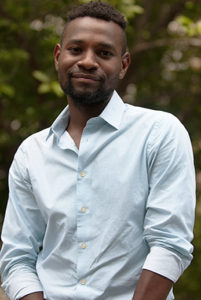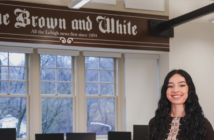
Miguel Cole
People have an inherent disposition to socially categorize others. Race, wealth, gender, age and religion, for example, can allow us to easily identify our surrounding environment and those within it.
Social psychologists call this the “Us vs. Them” mentality, which fosters a sense of security. The issue, however, arises when people grow comfortable and content in their categories. That’s when the sense of security devolves into isolation and exclusion.
From this comes variations of hate like racism and homophobia, fueled by fear and misguided mentalities. But, just because this subconscious behavior can manifest into a disagreeable understanding of the world, it does not mean that we are bound to it.
True change occurs when people cross the lines drawn by social categorization. It is the start of a new understanding, one that reveals that we are all in this together. We are all interpersonally connected and are able to use our connection to accomplish common universal goals.
So much more can get done once people make a conscious decision to put away the “Us vs Them” mindset. How is it that we, as a society, have progressed tremendously in so many different areas, but still hold on to outdated ideas of social categorization?
If we look back at social movements throughout history, we can see that it is possible for people to cross those lines and come together for a universal good. We have done this on campus. We have come together to fight issues that have affected all of us, and we have won in the past. We fought the housing crisis, we spoke out about domestic violence in Walk a Mile in Her Shoes, we’ve had protests and rallies to defend ourselves and our campus.
There is only one reason that it was possible. It is because people of different backgrounds realized that nothing can be accomplished if we don’t put aside our self-proclaimed differences, and that’s hard.
It’s not easy to step out of your comfort zone. It’s not easy to change your way of thinking or your way of living. But anything that is worth doing — anything that is going to mean something — requires people to disband this mentality. It is going to require that people let go of this facade of security, which, at its core, is really just isolation and exclusion fueled by fear.
Abraham Lincoln knew it when he gave his “House Divided” speech. Martin Luther King, Jr., knew it when he wrote the Letter from Birmingham Jail. Nelson Mandela knew it when he gave his “I Am Prepared to Die” speech.
There are so many examples for reasons to remember that we are all on this earth, living this life together. No man is alone in this existence and being selective is no way to go about life. We need to open our hearts and make decisions as a unit if we are truly going to create change.
The world cannot and will not go on if we keep on living the way our ancestors lived, separated and isolated in scattered groups. If one bone is broken, the entire body suffers; if all the bones are broken, the body cannot function and will fail to progress.
Our ability to come together is one of our most valuable assets, yet, sadly, one that is not used enough. Thus, the challenge I am placing to all those reading this is to do away with selective group mentality and envision a life where we can draw from our most valuable resource, each other. Then and only then can we truly move forward.
We have all evolved passed the “You vs Me” stage, now we just need to get past this “Us vs Them” stage so we can realize that when it all boils down to it, “we” is all that matters. “We” is all that we have. “We” will change the world and “we” will effect change for a world that “we” can all thrive in.





Comment policy
Comments posted to The Brown and White website are reviewed by a moderator before being approved. Incendiary speech or harassing language, including comments targeted at individuals, may be deemed unacceptable and not published. Spam and other soliciting will also be declined.
The Brown and White also reserves the right to not publish entirely anonymous comments.
1 Comment
“People have an inherent disposition to socially categorize others. Race, wealth, gender, age and religion…” This is true but not necessarily a negative. If there is a respect for the “other” the categorization can and should go deeper than the above list. “It is because people of different backgrounds realized that nothing can be accomplished if we don’t put aside our self-proclaimed differences, and that’s hard.” With respect for the other, people of different backgrounds will accomplish much together while acknowledging and managing real differences.
President Trump is not an example of how to act but how we relate to him is a test of how we should act. Is bullying the bully acceptable behavior?
Not all differences in opinion are the result of “… (concepts) fueled by fear and misguided mentalities; some differences are based on valid beliefs and evidence although several may seem to be beyond reconciling.